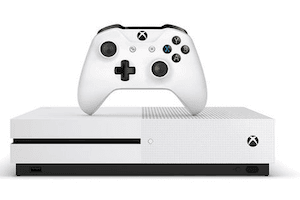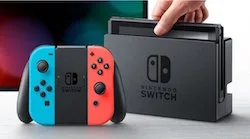Rime publisher Grey Box talks the long journey to 2017 and porting to Switch

We sat down with Grey Box producer Cory Bradley to play around with Rime and discuss the game's history.
The road to Rime has been a long and mysterious one. What sprouted as an isometric RPG with tower defence elements exclusive to Windows 8 and Xbox Live Arcade was soon nipped in the bud before it even had a chance to blossom. Roughly a year later in 2013, Sony showed off a little cel-shaded indie at its indie booth at Gamescom, revealing a game more akin to the Rime we have today. While the game was commended for its colourful style reminiscent of the recent (at the time) Journey and the older but universally beloved The Legend of Zelda: Wind Waker, it was criticised for showing nothing but cut-scene footage. Still, everyone was excited to see more from this beautiful, vibrant island adventure.
Then there was silence. About three years without so much as a peep.
Just last year, Tequila Works announced it had acquired the rights to Rime from Sony and that is was on track, with publishers Grey Box and Six Foot on board. Promising, but many expected it would still be some time before we heard from Rime.
In January of this year, we were proved wrong when Rime was announced as a multi-platform title for PlayStation 4, Xbox One, Microsoft Windows and Nintendo Switch (a port being worked on by Australian developer's Tantalus).
We're now quickly closing in on Rime's 26 May 2017 release date, so we took some time to get our hands on the first hour and a half of Rime and chewed the ear off Rime's producer Cody Bradley about the game's history and Switch port. Many details regarding the game's Switch port are still under wraps. Understandably, Bradley had to avoid some of our questions regarding everyone's favourite handheld hybrid. Interesting still was Bradley's response to our question about gameplay differences on Switch. While he was mostly hush, he did suggest that there were Switch specific features being considered, he just wasn't at a place to talk about it.

Having spent some quality time with Switch, I can say with confidence it will be my console of choice for the island puzzler. Like Journey, Rime is a very intimate experience. One that many people are going to want to enjoy wrapped in a blanket, headphones in. Some of the puzzles also lend themselves to the Switch's motion controls and I could most certainly see HD rumble being used to convey some details the team are trying to convey without a traditional heads-up display.
Read on for our full interview with Cody Bradley where he discusses Rime's long, storied path to release, how user testing helped shape the final product and the comparisons people love to draw from the Legend of Zelda series.
Though we’ve seen a few videos and images for Rime, a lot of people are still confused about what it is exactly. I think this has been muddied by the comparisons to Zelda. During our hands-on, you explained that the idea going in was that the gameplay had to make sense. Specifically that a young, lost boy is not going to pick up a stick to fend off a monster he has no chance of defeating. Games like Oxenfree, Firewatch and The Witness have proved we don’t need combat to make a game engaging. In that sense, do you think 2017 is actually a better time for Rime to release, rather than its originally intended release window?
That’s an interesting question. I don’t necessarily think 2017 is a better year for Rime to come out. Just because of the landscape as a whole, the industry. I think that, the reason 2017 is a better time for Rime to come out, is because we’ve had an opportunity to refine the vision, to give the game its focus. We’ve really been able to hone in on the things we wanted to do and wanted to do well. We just happen to be in 2017 that the game has reached the point where Rime is at its best.
Was there any specific moment, a major shift in either gameplay or narrative, where Rime became a much different game than it was originally. Or has it always more or less been the one vision with smaller tweaks?
I think that every developer on this project has a moment where something was implemented in the game where the lightbulb went off and they saw the potential in the product as a whole. It’s different between developers. I know that I personally have that moment. But I can’t talk about it, because it happens later in the game. Players are going to have to experience that for themselves. I do know that about a year ago, we had a bunch of user testing, a bunch of people playing through the puzzles. We were watching footage of how they played through and responded to the puzzles. If there was a single moment where the long term potential of Rime was unlocked, it was how the game started to shift from that moment. We learned a lot of lessons. We learned a lot about how players interact with the product. We talked about how we tried to let players organically know the way forward without any intrusive UI. A lot of that language was developed as a result of going through that process. To more directly answer your question, I would say that Rime really turned a corner once people starting getting their hands on it.
Opening up to multi format, including Switch, is bound to open up new gameplay opportunities. What opportunities did including the Switch bring about? Were any of the lightbulb moments you mentioned that the Switch specifically inspired?
The Switch is definitely its own unique platform. There were definitely some things that it brought to the table that other platforms can’t. Obviously, mobility right? You can play this on the go at your own pace. Where you want to. I definitely think there’s going to be the type of player who wants to put themself in a nice quiet place to experience this game. The Switch lets you do that. You’re not always sat at your TV or PC. You can take it and experience it at your own place. Since that’s a huge part of the game itself, your own personal experience with the product. I think that’s really what the Switch brings to the table.
From what we experienced today, I couldn’t help but imagine picking it up on the Switch and retiring to a quiet room with the headphones in. Not to say you couldn’t play it with other people, but it is a very personal game. I think those kinds of games are prime for the handheld experience.
One thing that has consistently popped up in the leadup to Rime is the comparison to Zelda. After some hands-on time, that feels more superficial than anything, a familiarity with the island setting and vibrant colour palette. Do you think it’s a fair comparison to make? And how does the team at Tequila feel about it?
Any time you can be mentioned in the same sentence Zelda, it’s obviously very flattering. I think at a very top level, 20,000 foot view, that’s a very easy comparison to make based purely off stills. As you experienced today, there’s obviously some drastic differences between the two titles. It’s one of those situations where we’re personally never going to put ourselves in that context because we know what the game is as a whole but the fact that players and members of the media are making that comparison, we take that as a huge compliment. We’re ultimately very flattered about it.
Is there anything you can speak of now that’s planned for the Switch version that utilises the hardware in a different way to other platforms? Or are we getting the exact same experience across all platforms?
There are console specific features being considered for the Switch version but I’m not in a place to talk about that yet. I’ll have to shy away from that question.
No problem. This was actually a question we had from a reader when Rime was first announced for Switch: We were asked about the cost difference between the Switch version and other platforms and why Rime costs more on Switch. The folks over at Tequila have stated that there are simply more manufacturing and development costs when it comes to Switch. As the publisher, can you give any additional information on the extra overheads involved with porting to Switch?
Nothing beyond what’s been said already. Every single console has different costs involved with bringing a title to market. In this case, we had to make an evaluation based off the two market costs for the Switch platform and price it based off that.
It has been a long road to Rime. So close to launch, what are the places for the team other than taking some time off? Is Rime a universe they would like to return to or are they looking somewhere completely different for their next project?
I’ll back away from that in one way. Rime is an experience unto itself. It’s very deliberate in the journey it wants to take players through. When we talk about this world, we just want to see how players are going to engage with it and what the experiences are going to be, what the takeaways are before we even start having conversations about the future.

